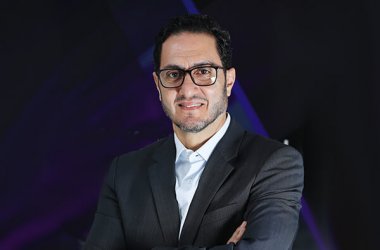
Fernand Rasetti, COO, Sage, a software development company serving the global financial industry in streamlining processes for core banking operations, was in the UAE to attend the MEFTEC conference. In a chat with Pallavi Sharma, he discusses the company’s strategy in the coming months and how economic shocks are actually good for everybody.
Is this your first visit to the UAE? What is the reason for your visit now?
I have made regular visits to the UAE over the last two years, although this time round I am here for the MEFTEC event because it is one of the best events for the banking and finance industry in the Middle East, focused on middle and upper management, who go to the event in a search for solutions catered for their organisation’s specific requirements.
At this point, Sage wants to be seen in this market and missing an opportunity like the one MEFTEC presents, to exhibit ourselves, understand the market and customer needs cannot be justified. As vendors, it is also an opportunity to demonstrate solutions and meet new business prospects.
What sets Sage apart from its competition across the globe?
Sages’s solution is based on a core CRM model which is then split into modules that cover specific market segments. So we can scale the system up and down to deliver the customer’s requirements.
So in a bank, that has different activities like asset management, portfolio management, fund management, independent investors with each having a specific relationship with all the actors and interfaces that relate to the core activities, and if the solution can’t be adapted to their way of thinking, it won’t suit their needs. So our ability to change the system and accommodate specific requirements of the customer is definitely our USP.
What are the company’s strengths, and where lies its weaknesses?
Where our core strength is our flexibility, our weakness would be the ability to demonstrate our capabilities to customers This is especially one in market with a lot well known players who have been there longer, specially because not only are we younger we are also a much smaller organisation.
The hot topics in IT these days seem to centre around virtualisation, cloud computing and data analytics. We don’t hear much about Sage in these technology discussions. How are you tapping into these trends gobally?
I don’t like to use the term cloud computing, I believe that the banking and finance institutions, because of the sensitivity of their data are hesitant about cloud computing because they need this data to be hosted in a known location within a secure vault. So I would term it a hosted solution, where we provide the customer a service to host their data in a location that is external but well known. We can guarantee the protection of this data or information within our servers and our secure vault.
The industry that invests in this solution the most is the investment banking sector, wealth and asset management because they deal with a smaller number of customers and don’t have the infrastructure to support the IT required to meet their standards of service. We provide them a service that can be customised to suit their needs and may be scaled down to fit their budgets as well. IT becomes easy for them; the deployment is also more effective.
What are the major technology trends that you think will affect global IT decisions and effectiveness in the next 18 months?
The future of technology is definitely cloud computing. With companies such as Amazon and Google offering the cloud, the way people see data, manage data along with how they
store the data has changed.
In the past data needed to be enclosed and safe. People are accepting the constraint of hosting the data in an external space that is publicly accessible and shared between companies. It is a challenge and the scenario is much the same as when the Internet was first introduced and people said they wouldn’t need it and now they can’t live without it.
Cloud computing will definitely change the IT world, the way that organisations function and the role that IT departments play within their respective organisations. I think vendors need to educate the public about data security in the cloud to encourage more investment in this area. Once organisations know that their data is encrypted and secure from any attacks the cloud will gain momentum.
At the moment, we’re witnessing many organisations experimenting with the idea of cloud computing by placing their non critical data onto the cloud, but given time and knowledge, this will change. The
security concern needs to be addressed at a national level to encourage users; laws and regulations must also be put in place to better the security ecosystem surrounding cloud computing.
Do needs for software solutions vary very largely between SMEs and enterprises? How is Sage targeting both?
I don’t think the requirements are any different. I think the capacity to service and manage the infrastructure and application requirements is what varies. While the larger organisations have the budgets to invest in the latest technoglogies, they don’t have the appetite for risk that SMEs do.
What do you believe are the challenges Sage is likely to encounter on a global scale as it works towards the next stage of growth?
I see a dramatic change in the banking sector, which is now recovering from a slowdown in investments due to the financial crisis. Banks are also experiencing growth in operations and therefore, want to invest in scalable solutions based not only on what is applicable today but also based on what the future of the industry and its operations will be.
How important is the Middle East as a market to Sage?
Not disclosing any numbers, the region represents over 30% of our revenue today. We believe this is a fast growing market with immense opportunities and growing competition. It is a young market with a lot of needs where vendors with flexible solutions can harness great leads.
Most importantly, I believe that shocks are good for business. We have learnt from the past that shocks make an organisation or nation take notice of areas for improvement, what they’ve been doing wrong and optimise excesses. Suddenly, everybody realises that excesses create redundancy and incompetence and so you rethink strategies based on what was earlier ignored or entirely missed out.
I also think this region is very young; companies are not mature enough to capture the scope of banking in the region. When you sell something to them you realise that although they want a particular solution or product they don’t understand the scope and extent of change the solution may trigger. So like every young country in the world, it takes time to create the knowledge base and skills
that an industry requires. It is worthwhile investment and is only a matter of time.
How does Sage’s strategy vary when it comes to emerging regions? What are emerging markets and how do you work to overcome them?
They may vary around cultural aspects. For instance, we have invested a lot in Islamic banking but the objective is to develop a single solution that may be adapted and customised to suit the customer’s requirement regardless of regional divides.
How do you collect feedback from customers and how is this incorporated back into your solutions?
First, we visit the region, at least twice a year, to meet customers to get feedback and take note of opportunities for improvement. We provide comprehensive support from feedback to service, measure how we have responded to customer requests, and document these.
We are also working on regular calls and follow up from sales staff and are in the process of formalising this project.
How does the feedback loop work in emerging regions like the Middle East? Do you have an R&D base in the region or is it primarily a sales setup?
No, we don’t have an R&D base in the region. We work on a factual model, a centralised process for software development, where we follow a specific work flow from assessment and design to acceptance test and delivery. The process is rigid and at no stage can it be jumped.
Our core development operations are based in Switzerland because we have good rapport with banking organisations and universities there. These contribute to the existing knowledge base.
We know that there currently exists a gap in knowledge sharing across developers and end users and are working on a detailed certification process for both developers and end users , so that eventually both parties know what is being talked about and fully understand all the elements and interfaces.
For the next few months, our strategy is customer acquisition. We are fighting to build a loyal customer base in the region, to let others know that we are here offering them highly customisable solutions.





